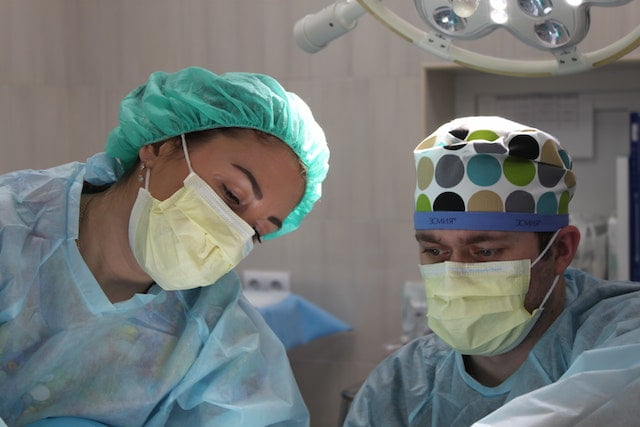Email us if you want to showcase your mind-boggling Articles.

The Responsibility for Nurses: A Comprehensive Analysis on Essential Duties of Nurse
Nurses play a crucial role in the healthcare system, taking on immense responsibility to ensure the well-being of patients. In this article, we will delve into the various aspects of the responsibility entrusted to nurses. From their critical decision-making skills to their compassionate care, we will explore how nurses shoulder the weight of responsibility to provide quality healthcare services. So talking about Responsibility for Nurses, we can safely attest that the Duties of Nurses are full of responsibilities, nurses need to be educated, careful, caring, and patient as they always deal with people needing help. Let’s read more information on the Responsibility of Nurses in detail!
The Essential Duties of a Nurse (Responsibility for Nurses)
The Frontline of Patient Care
As the primary caregivers, nurses are at the forefront of patient care. They have the responsibility of assessing patients, monitoring their vital signs, and ensuring their comfort and safety. Their ability to act as the first point of contact for patients is vital in creating a positive healthcare experience.
Taking Charge of Medication Administration
Administering medication is a critical responsibility of nurses. They meticulously review prescriptions, calculate dosages, and ensure the safe delivery of medications to patients. The accuracy and attention to detail displayed by nurses are paramount to preventing errors and adverse reactions.
Collaborating with the Healthcare Team
Nurses are team players, working alongside doctors, specialists, and other healthcare professionals. They actively participate in interdisciplinary discussions and provide valuable insights based on their firsthand experience with patients. This collaboration ensures a holistic approach to patient care and improves overall outcomes.

Critical Decision-Making in Challenging Situations
Assessing and Prioritizing Patient Needs
Nurses face a myriad of situations where quick thinking and effective decision-making are crucial. From triaging patients in the emergency room to allocating resources in a busy hospital ward, nurses must prioritize and act promptly to provide the best possible care. So responsibility for Nurses definitely includes prioritization of needs and swift decision-making abilities.
Handling Medical Emergencies
During medical emergencies, nurses are often the first to respond. They are trained to handle life-threatening situations, such as cardiac arrests or respiratory distress, with skill and composure. Their ability to think on their feet and make split-second decisions can make all the difference in saving lives.
The Emotional Aspect of Responsibility For Nurse
Providing Comfort and Emotional Support
Nurses go beyond their clinical duties and offer emotional support to patients and their families. They possess exceptional communication skills and empathy, which enable them to form meaningful connections and provide comfort during difficult times. This emotional support plays a vital role in the overall healing process.
Advocating for Patients’ Rights
Another essential responsibility of nurses is advocating for patients’ rights. They act as the voice of the patient, ensuring their concerns are heard and respected. Nurses collaborate with healthcare providers to address any issues or discrepancies, ultimately working towards the best interest of the patient.
The Major Responsibility for Nurses
Nurses hold a position of great responsibility within the healthcare system. They play a vital role in providing quality care to patients and ensuring their well-being. Let’s explore two major responsibilities that nurse shoulder with utmost dedication.
1. Patient Advocacy: Being the Voice of the Patient
One of the primary responsibilities of nurses is to act as advocates for their patients. Nurses are the ones who spend the most time with patients, closely monitoring their conditions and attending to their needs. They establish a strong bond of trust, serving as a bridge between patients and the healthcare team.
Nurses advocate for patients by ensuring that their rights and interests are protected. They actively listen to patients, understanding their concerns, fears, and preferences. Nurses communicate these important details to the healthcare team, making sure that the patient’s voice is heard and respected.
Patient advocacy also involves ensuring that patients receive the necessary information to make informed decisions about their healthcare. Nurses educate patients about their conditions, treatment options, and potential risks and benefits. By empowering patients with knowledge, nurses enable them to actively participate in their own care, promoting a collaborative and patient-centered approach.

2. Ensuring Patient Safety: A Top Priority
Patient safety is a paramount responsibility for nurses. They are accountable for providing a safe and secure environment for patients throughout their healthcare journey. This involves a range of tasks and practices aimed at preventing errors, minimizing risks, and promoting optimal outcomes.
Nurses meticulously assess and monitor patients, constantly evaluating their condition and responding promptly to any changes or complications. They are responsible for administering medications accurately and adhering to strict protocols to prevent medication errors. Nurses also implement infection control measures, ensuring a clean and hygienic environment to prevent the spread of infections.
Conclusion
The responsibility placed on nurses is immense, requiring a combination of knowledge, skill, and compassion. From providing frontline care to making critical decisions, nurses play a pivotal role in the healthcare ecosystem. Their commitment to patient well-being, emotional support, and advocacy exemplifies the profound responsibility they shoulder each day. As we recognize the dedication and sacrifices of nurses, let us appreciate the significant impact they have on our healthcare system and society as a whole.



